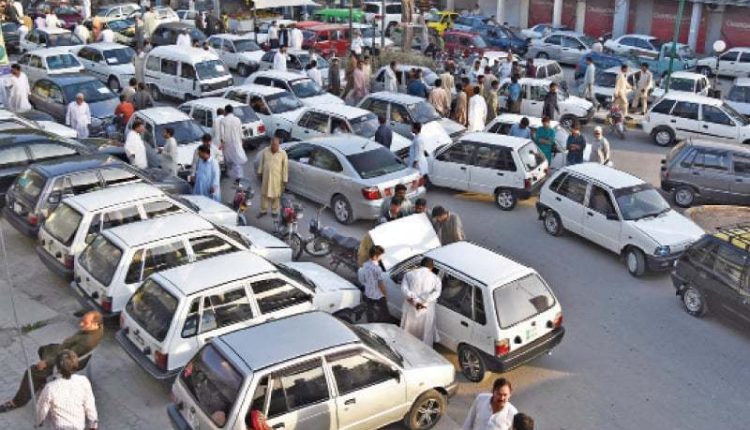When the future of Pakistan’s auto industry looks bleak and the local car assemblers stand at a critical juncture, another increase in general sales tax (GST) to a staggering 25%, previously 18%, is stirring up serious concerns.
The auto assemblers are skeptical about the positive outcomes of such a tax hike. They argue that it’s unlikely to generate the projected revenue of Rs. 4 billion. Instead, it’s feared that this move will adversely affect the economy, exacerbate negative sentiments among consumers, and shake investors’ confidence in Pakistan.
PAMA’s Narrative
Abdul Waheed Khan, the Director General of Pakistan Automotive Manufacturers Association (PAMA), highlighted these concerns in a letter to Caretaker Finance Minister Dr Shamshad Akhtar. He pointed out that such a hike in GST would inevitably lead to a rise in prices of locally assembled cars, when used cars are already replacing high priced locally assembled new cars.
Moreover, the decision seems to create an imbalance by keeping taxes unchanged on imported used cars. This disparity has resulted in used cars flooding the market compared to new cars (CKD), capturing a significant share and causing losses in foreign exchange and government revenue.
Appeal for Reconsideration
Mr. Waheed urged the finance minister to reconsider the decision, emphasizing that it would only burden the local industry further. Interestingly, this proposal had been rejected earlier during discussions with industry representatives and vendors.
Meanwhile, auto dealers are bracing themselves for a significant sales drop in locally assembled vehicles. With the anticipated price hikes due to the GST increase, buyers are expected to turn even more towards used cars, exacerbating the situation for new cars sales.
The repercussions of this decision are already being felt, with a sharp decline in CKD imports and a significant drop in auto sales. High-interest rates coupled with rising prices have further dampened consumer enthusiasm for purchasing new vehicles.



PAMA always says that used cars are the source of lost revenue and govt taxes. Yet these local companies are themselves importers of imported parts assembled locally.
Not only that, these local companies are partially or fully owned (in the case of Pak Suzuki going forward) by their principles who are foreign companies. They not only spend dollars abroad to get parts, they also send money out of the country to their parents companies as profit shares. Doesn’t that make them doubly bad for our nation? If their argument is “jobs created” what are those jobs costing the nation to exist in the first place? If the jobs created are worth $50 million and it is costing the nation $150 million to support, isn’t that a burden on Pakistan and not worth it? It would have been justified if ANY of our thirty year veteran Japan brands did any business abroad in exports. That is not the case. PAMA and their darling assemblers are a net burden on our already collapsing economy.
Prices of new cars are pushing the prices of used cars ever upwards. That means regular people who can only afford a used car are looking at older and older models to buy. That is doubly bad for our already seriously smog hit polluted country.
Lastly PAMA is again whitewashing the truth. Here again is a PW article that contradicts their stance that imports cost the nation more.
*https://www.pakwheels.com/blog/restrictions-on-car-imports-cost-fbr-rs-22-billion-in-revenue/amp/
FBR itself admitted tax loss because of restrictions on imports. Why is that that tax loss, to this day, is not a problem for PAMA or the government?
These companies have said repeatedly they will not make small cars. So it does not affect them at all if the government finally allows the import of small cars ONLY to cater for the majority of the nation rather than make such nonsense claims and shifting the blame to imports for their own shortsighted flawed business practices?